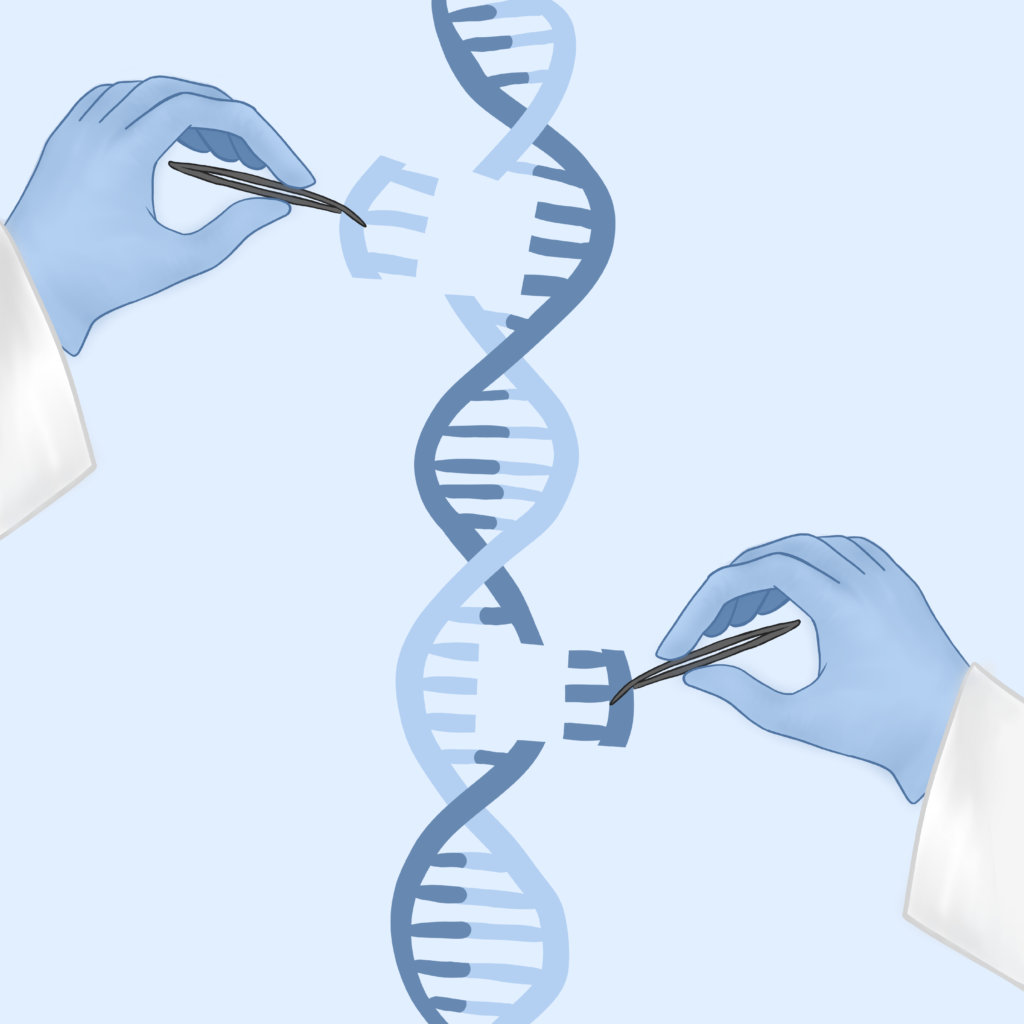Rewriting Life and the Ethics of Human Enhancement
By Luka TAKKI LUX-S4FIA
Edited by Dalia Sophia WOLNY S5DEA

Humans have always been eager to discover a way to achieve eternal life, which was thought to be completely impossible – until recently. In just one night, gene technology became one hundred times cheaper than before, placing the ability to manufacture and alter human DNA in our hands. But what exactly is CRISPR, why does it matter so much, who gets to benefit, and should we even be using it? These are the questions this article will explore.
Clustered Regularly Interspaced Short Palindromic Repeats, CRISPR, is a form of gene technology that manufactures tiny strands of DNA to alter the behaviour of cells and entire organisms. This is possible by using some genes in bacteria that possess the power to change DNA itself to shield against deadly diseases. Humans can use these genes to precisely edit DNA and even change many traits.
If we do possess the power to manipulate our DNA, why would anyone want to allow the very thing that defines their individuality? There are various reasons someone might use CRISPR; for example, to cure diseases that were previously non-curable, such as cancer. We could also use CRISPR to enhance human capabilities by providing superhuman abilities like increased intelligence or strength. CRISPR might even serve as a shortcut to achieving an almost eternal life by eliminating those minor imperfections in our DNA that cause aging.
Humans have always sought to change themselves into something better. After all, we are nothing more than a bunch of naked monkeys that started changing what we didn’t like about the world, and today, if we were to offer superpowers and eternal life to any person on the street, they would be crazy to say no. After all, there are books, movies, and plays written on the magic of eternal life and godlike superpowers.
But CRISPR is not the first invention in this field; we have for a very long time possessed the tools to change genes and even clone animals, but what makes CRISPR different is the accuracy, time, and price. In 2010, if you had the idea of making glow-in-the-dark zebra fish with your friends, it could cost thousands of euros, and today you could basically make them with your lunch money in your school lab.
The more pressing question is: if we now possess the capability to cure any disease, allow everyone to live for hundreds of years, and grant superpowers to anyone who requests them, will it be the right thing to do? Should we play God as we have so frequently done in the past?
Of course, if we can cure people with diseases that were deadly before, we should do it. But should we start handing immunity from all diseases to everyone, or enhance the intelligence of everyone with a lower IQ than the average? And in the end, who gets to decide? Should everyone have the right to genetically change their DNA, or is it something only for the super-rich or only for the most important? The most likely outcome is that it will be brought to those most in need of help – those who wouldn’t have a chance without it.
But the biggest question prevails: what is ethnically correct? Should anyone be able to live as long as they want, should we cure anyone and make everyone stronger and more intelligent, or should we live as we have done before, without using the new inventions as before?
The truth is that there is no correct answer and there likely will never be one. Life evolves all the time, DNA, the form most of the life today works on, wasn’t always here. There were more primitive forms of life before it, such as RNA and others, but when DNA came, it replaced the other forms of life. This very same thing is likely to happen to us.
As artificial intelligence, machines, and CRISPR develop further, humans will start to become unnecessary, and we will be replaced by yet another form of life, such as the gene-manipulated superhumans.
CRISPR has opened the door to a future unreachable before, where we can cure diseases, enhance human abilities, and even extend life itself. But with this new power comes deep ethical questions about who should have access and how far we should go, and whether changing our DNA changes us being us. In the end, it’s up to all of us to decide not just what is possible but what is the right thing to do.
